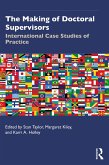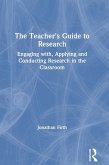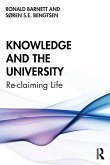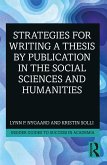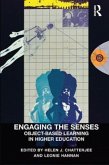Grounded in key sociological theory on the concepts of boundaries, power and control, this text addresses the question of whether the university is thriving or merely surviving.
Using a sociological lens to consider how institutions must engage in boundary transactions in order to maintain their unique position and identity, this book explores how these transactions also have the potential to undermine academic boundaries. Including a detailed analysis of the activities, organisation and outputs of academic research in the context of science, technology, engineering, mathematics and medicine (STEMM) departments of UK universities, the arguments presented have implications for universities and their stakeholders not only in the United Kingdom, but wherever universities face challenges of purpose and identity, particularly where these are shaped by neoliberal modes of governance and management.
Insights into how universities must balance the ideasof themselves as teaching institutions, research institutions and their broader societal importance and impact make this important reading for higher education scholars and postgraduate students, sociological theorists and all those interested in the future of the university.
Using a sociological lens to consider how institutions must engage in boundary transactions in order to maintain their unique position and identity, this book explores how these transactions also have the potential to undermine academic boundaries. Including a detailed analysis of the activities, organisation and outputs of academic research in the context of science, technology, engineering, mathematics and medicine (STEMM) departments of UK universities, the arguments presented have implications for universities and their stakeholders not only in the United Kingdom, but wherever universities face challenges of purpose and identity, particularly where these are shaped by neoliberal modes of governance and management.
Insights into how universities must balance the ideasof themselves as teaching institutions, research institutions and their broader societal importance and impact make this important reading for higher education scholars and postgraduate students, sociological theorists and all those interested in the future of the university.
"The health, freedom and sustainability of our universities, and the intensifying pressures that confront them, continue to divide opinion within the sector and beyond. In this cogent and penetrating analysis, Eliel Cohen brings a fresh perspective to debates about the institution of the university. Through his focus on the shifting boundaries of the university, and the ways that boundary-crossing activities can reinforce or undermine identity, Cohen provides a novel framework for reinterpreting the roles and values of the university in a networked age, and for looking afresh at our notions of impact, expertise and entrepreneurialism. It is an important argument that deserves a wide audience among policymakers, university leaders and academics themselves."
James Wilsdon, Director, Research on Research Institute (RoRI) and Professor of Research Policy, University of Sheffield.
"Any book that theorises the contemporary university through the central theme of boundaries, draws on the ideas of theorists such as Basil Bernstein and Mary Douglas, and brings fresh empirical evidence in addressing key policy issues, announces itself as a text that just has to be taken seriously. This book will surely and very quickly find its way onto the reading material of higher education researchers, and in many quarters."
Ron Barnett, Emeritus Professor of Higher Education, University College London Institute of Education
"This book breaks new theoretical ground in its elaboration of the tensions in the university's institutional identity in the context of the knowledge-based society of the 21st Century. Its findings and implications make this key reading for those interested in the management and politics of universities."
Saeed Moghadam Saman, Researcher, Western Norway University of Applied Sciences
James Wilsdon, Director, Research on Research Institute (RoRI) and Professor of Research Policy, University of Sheffield.
"Any book that theorises the contemporary university through the central theme of boundaries, draws on the ideas of theorists such as Basil Bernstein and Mary Douglas, and brings fresh empirical evidence in addressing key policy issues, announces itself as a text that just has to be taken seriously. This book will surely and very quickly find its way onto the reading material of higher education researchers, and in many quarters."
Ron Barnett, Emeritus Professor of Higher Education, University College London Institute of Education
"This book breaks new theoretical ground in its elaboration of the tensions in the university's institutional identity in the context of the knowledge-based society of the 21st Century. Its findings and implications make this key reading for those interested in the management and politics of universities."
Saeed Moghadam Saman, Researcher, Western Norway University of Applied Sciences




